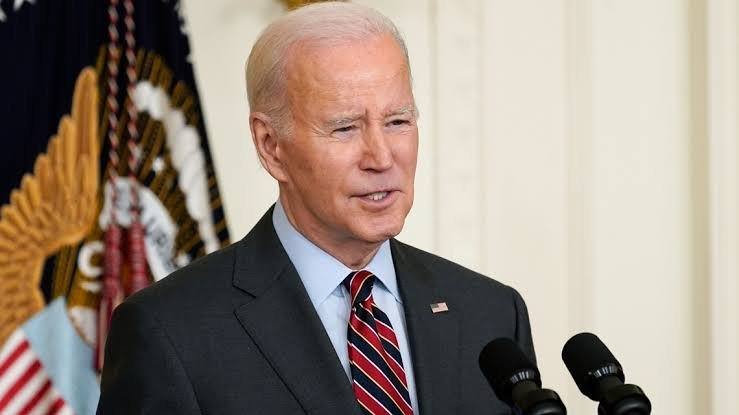Biden Reduces Sentences of 31 People Convicted of Nonviolent Drug Offenses – The White House announced that President Joe Biden had instructed for the sentences of 31 individuals convicted of nonviolent drug-related crimes in federal prisons to be reduced. The commuted individuals will serve the remainder of their punishment under home confinement, with their sentences set to expire on June 30th.
Following this, they will be placed on supervised release, with the duration determined by the length of their initial sentence. The group of individuals whose sentences were commuted included both men and women who were charged with drug possession in several states, namely Iowa, Indiana, Mississippi, Florida, Alabama, Georgia, Hawaii, and Texas, with the majority of convictions involving methamphetamine. A few others were charged with cocaine, heroin, and marijuana offenses.
People Also Read: Joe Biden Promises Freedom for Jailed WSJ Reporter Evan Gershkovich at White House Correspondents Dinner
The announcement released by the White House on Friday also listed individuals from California, Louisiana, Missouri, Maryland, Michigan, New York, Illinois, Tennessee, and Ohio. The statement from the White House further mentioned that those who received commuted sentences would not be required to pay the remainder of their fines, which ranged from $5,000 to $20,000. “These individuals, who have been successfully serving sentences on home confinement, have demonstrated a commitment to rehabilitation, including by securing employment and advancing their education.
Many would have received a lower sentence if they were charged with the same offense today, due to changes in the law, including the bipartisan First Step Act, the White House’s statement added. Signed by former President Donald Trump during his time in office, the First Step Act is a bipartisan bill from 2018 that aims to broaden the possibilities for rehabilitation for individuals who have completed their prison sentences.
This bill also focuses on reforms to the criminal justice system regarding sentencing. Alongside its objective of expanding rehabilitative opportunities for individuals completing their sentences, the First Step Act also features additional provisions. For example, the act reduces the mandatory minimum sentences for specific drug-related offenses and increases credits for good conduct and time spent in custody awaiting the resolution of cases.
Furthermore, the act prohibits certain correctional practices such as shackling pregnant women. The White House on Friday also announced the release of an “evidence-informed, multi-year Alternatives, Rehabilitation, and Re-entry strategic plan.” According to the White House, the objective of the plan is to enhance public safety by minimizing unnecessary criminal justice interactions so that law enforcement officers can concentrate on crime prevention.
Additionally, the plan focuses on fostering rehabilitation during incarceration and facilitating successful reentry into communities. The plan proposes various methods of aiding individuals in the federal justice system, including expanding healthcare access, securing access to affordable and safe housing, providing educational opportunities, and improving access to food and subsistence benefits. The plan also emphasizes the need to provide job opportunities and access to business capital, as well as promoting access to financial services and reducing voting barriers for eligible individuals.
People Also Read: Florida House Passes Law That Would Allow Gov. Ron DeSantis to run for President Without Resigning
In October of last year, President Biden granted clemency to numerous individuals who had been convicted in federal court for possessing small amounts of marijuana. He stated that imprisoning people for marijuana possession had caused harm to too many lives and resulted in the incarceration of people for actions that numerous states no longer consider unlawful. Biden expressed his belief that it was time to correct these injustices at the time of these pardons.




